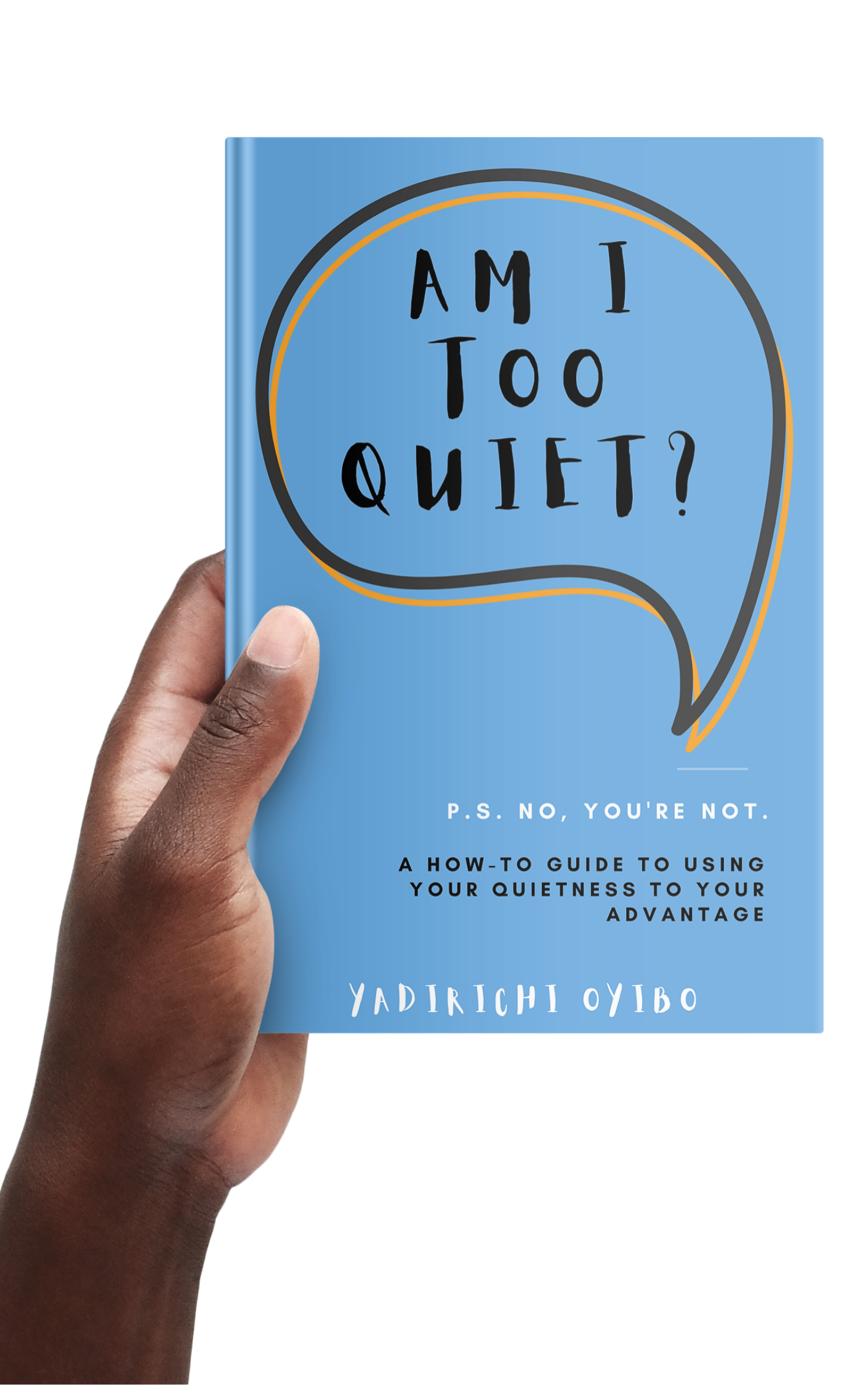The Beautiful Connection: 5 Traits of Both Empaths & Introverts
Photo by Kenny Eliason on Unsplash
Empaths are individuals who are highly sensitive and can deeply feel the emotions and energies of others—often absorbing them as their own.
Introverts, on the other hand, are individuals who gain energy from solitude and introspection, often preferring quieter and more solitary environments.
While empaths and introverts are not mutually exclusive, there is a significant overlap between the two personality types.
Many empaths identify as introverts due to their need for alone time to recharge and process emotions. But, not all introverts are empaths.
The aim of this article is to explore the common traits shared by empaths and introverts. More so, the unique characteristics of a person that is both empath and introvert.
By delving into these shared characteristics, we can gain a deeper understanding of the beautiful connection that exists between these two personality types and how they can support and complement one another.
A little more about empaths…
What is the meaning of empath? Empaths are special individuals who display remarkable compassion, intuition, and a genuine desire to help others.
The empaths meaning extends beyond mere empathy, encompassing a deep and intuitive understanding of others' emotions and experiences.
People with an empath personality have a natural ability to deeply feel the emotions and energies of those around them. You can spot an empath through the following:
Sensing the vibes
Being an empath means having an extraordinary sensitivity to emotions and energies. They can walk into a room and immediately sense the mood without anyone saying a word.
This heightened sensitivity allows them to notice even the subtlest cues and non-verbal communication.
Empathy runs through their veins
Empathy is like second nature to empaths. They effortlessly connect with others on an emotional level and genuinely care about understanding and supporting them.
If you're feeling down, an empath person will be the first to notice, offer a listening ear, and be a comforting shoulder. They create a safe space where people feel understood and accepted.
Their emotional intelligence is on point
Empaths tend to have a keen sense of emotional intelligence. Their sensitivity helps them recognize and interpret emotions with remarkable accuracy.
This emotional intelligence, combined with their natural empathy, allows empaths to navigate relationships with sensitivity and compassion. An empathic person knows how to create meaningful connections and foster a supportive environment for others.
On another note—unveiling the world of introverts…
Alright, let's dive into the world of introverts for a moment! These are the folks who thrive on some good ol' alone time.
Introverts have their own unique set of characteristics that set them apart from the extroverted crowd, such as:
Embracing solitude and deep thoughts
Picture a person cozied up with a book or lost in their thoughts. They genuinely enjoy their own company and find solace in moments of solitude. This person is an introvert. They find their bliss in introspection and self-reflection.
The power of recharging alone
Here's a secret about introverts—spending time alone recharges their batteries. It's their way of refueling and regaining energy. After a busy day or time at a social gathering, introverts need that peaceful retreat to process their thoughts and recharge their mental and emotional energies.
Introversion is their personality flag
Introversion isn't just a temporary state for introverts; it's ingrained in their personality. It's like a fundamental part of who they are.
They find fulfillment and joy in quieter, more intimate settings and tend to thrive in deep, meaningful one-on-one conversations rather than large social gatherings.
5 Traits Shared by Empaths and Introverts
Photo by Priscilla Du Preez on Unsplash
Trait #1: Diving into Empathy
Both empaths and introverts possess a deep sense of empathy that goes beyond simply understanding others' emotions. They have an inherent ability to truly feel what others are experiencing.
Empaths can step into someone else's emotional shoes and share in their joys, sorrows, and struggles. Similarly, introverts have a genuine and compassionate understanding of others, often putting themselves in someone's position to grasp their emotions on a profound level.
This deep sense of empathy forms a strong connection between empaths and introverts, allowing them to relate to others with sensitivity and compassion.
Trait #2: Craving Solitude
Both empaths and introverts share a common need for solitude and quiet environments to recharge and rejuvenate. Empaths can become easily overwhelmed by the emotions and energies of others, making it essential for them to retreat to peaceful spaces where they can replenish their energy and find inner calm.
Similarly, introverts thrive in moments of solitude, where they can reflect, recharge, and engage in introspection. These solitary moments are crucial for both empaths and introverts to restore their emotional well-being and maintain a sense of balance.
Trait 3: Sensitivity to the Surroundings
Empaths and introverts possess a heightened sensitivity to external stimuli. They are attuned to the subtle details and emotional undercurrents in their environment.
Empaths can sense the emotional atmosphere in a room without any explicit cues, allowing them to adapt their behavior and offer support accordingly.
Similarly, introverts have a keen perception of their surroundings, noticing nuances and non-verbal cues that others may overlook.
Trait #4: Trusting the Gut
Both empaths and introverts have a strong intuition and a deep trust in their gut feelings. Empaths can intuitively sense when something is off.
They rely on their inner guidance to navigate complex social dynamics and make decisions based on their gut instincts. Similarly, introverts often rely on their intuition to navigate life's choices and relationships, trusting their inner voice to guide them.
This reliance on intuition allows empaths and introverts to make authentic connections and navigate the world with a heightened sense of self-awareness.
Trait #5: Profound Connections
As explained earlier, empathy and introverts excel in understanding others on a deep level.
Empaths often create a safe space for vulnerability and emotional support. Similarly, introverts have a knack for deep connections, often engaging in meaningful conversations and forging bonds that go beyond surface-level interactions.
These profound connections are marked by genuine understanding, forming the foundation of meaningful relationships for both empaths and introverts.
Navigating the Challenges as an Introverted Empath
First, let's define what we mean by "introverted empath" — these are individuals who embody both empathic and introverted qualities, creating a unique blend of sensitivity, introspection, and empathy.
Being an introvert empath comes with its own set of challenges. Let's dive into some of the hurdles we may encounter and explore how to navigate them:
Overwhelm from Absorbing Others' Emotions
Empath emotions are often a swirling mix of intense feelings, as they absorb and resonate with the emotional energies of those around them.
Similarly, introverted empaths soak up and understand the emotions of those around them. However, this gift can sometimes become overwhelming. You might find yourself feeling drained and emotionally exhausted, which is why emotional boundaries are necessary.
2. Struggling to Find a Balance between Social Interaction and Solitude
Balancing your need for social interaction and your equally important need for solitude can be a tricky tightrope to walk.
While empath introverts cherish deep connections, we also require ample alone time to recharge our energy. Finding the right balance can be challenging, especially in a society that often values constant social engagement.
It's essential for you to honor your introverted nature and prioritize self-care by carving out dedicated alone time while still nurturing your relationships. Communicating your needs openly with your loved ones can also help them understand and support you in finding this balance.
3. Difficulty Setting Boundaries and Prioritizing Self-Care
Introvert empaths often struggle with setting boundaries and prioritizing their own well-being. Our natural inclination to care for others can sometimes lead to neglecting our own needs.
It's important for us to recognize that self-care is not selfish but necessary for our overall mental and emotional health. Setting clear boundaries, both with others and ourselves, allows us to protect our energy and create space for self-nurturing activities.
Remember, saying "no" when needed and making self-care a priority is an act of self-compassion that benefits not only us but also those around us.
Liking this article? Join our Introvert Club→
Flourishing and Thriving as an Introvert Empath
Photo by Taisiia Stupak on Unsplash
Being an introvert empath is a beautiful journey that requires us to nurture and honor our unique qualities.
Here are some practical ways to help you thrive:
Cultivate Mindful Practices
Incorporate mindfulness into your daily routine. Engage in activities like meditation, deep breathing exercises, or yoga to cultivate a sense of inner calm and awareness. These practices can help you stay grounded and centered amidst the busyness of life.
Connect with Nature
Spend time in nature to recharge and reconnect with yourself. Take walks in the park, hike in the woods, or simply sit by a peaceful lake or beach. Nature has a way of soothing our souls and rejuvenating our energy.
Express Yourself Creatively
Explore creative outlets that allow you to express yourself authentically. Whether it's through art, writing, music, or any other form of creative expression, channeling your emotions and thoughts into these outlets can be incredibly cathartic and fulfilling.
Practice Self-Reflection
Set aside dedicated time for self-reflection. Journaling, introspection, or engaging in practices like gratitude or affirmations can help you gain deeper insights into yourself, your emotions, and your aspirations. It's an opportunity to understand yourself better and align your actions with your values.
Engage in Meaningful Activities
Seek out activities that align with your empathic values and passions. Getting involved in volunteer work, supporting a cause you care about, or engaging in acts of kindness can provide a sense of purpose and fulfillment. Contributing positively to the world around you can amplify your empathic qualities.
Establish Healthy Routines
Create routines that support your well-being. Prioritize regular sleep, nutritious meals, and physical exercise to maintain your overall health. By taking care of your physical well-being, you'll have a solid foundation to navigate the world as an empathic introvert.
Embrace Solitude Without Guilt
Give yourself permission to enjoy solitude without feeling guilty. It's during these moments of introspection and quiet reflection that you can recharge, process your emotions, and nurture your inner world. Recognize that alone time is essential for your well-being and personal growth.
Practice Effective Boundaries
Learn to set and maintain healthy boundaries in your relationships. Clearly communicate your needs, limitations, and values to others. By honoring your boundaries, you can protect your energy, preserve your emotional well-being, and cultivate more balanced and fulfilling connections.
FAQs
What is an empath person?
An empath is someone who has a heightened ability to understand and experience the emotions, energies, and perspectives of others, often to an intense degree.
Do introverts have empathy?
Yes, introverts can possess a strong sense of empathy. Empathy is the ability to understand and share the feelings of others, and it is not limited to extroverts. But are empaths introverts? Not every empathic person is introverted.
Am I an introvert or an empath?
It's possible to be both an introvert and empath—sometimes called an empath introvert. Introversion refers to how one gains energy and processes information, while empathy refers to the capacity to understand and connect with others' emotions.
What is an empath personality type?
The empath personality type refers to individuals who possess a heightened sensitivity to the emotions and energies of others. They often have a deep understanding and compassion for others' experiences.
What does it mean to be an empath?
Being an empath means having an innate ability to understand, feel, and absorb the emotions and energies of others. Empaths often have a deep sense of compassion, intuition, and emotional connection with those around them.
Now, over to you…
The connection between empaths and introverts reveals a remarkable synergy of traits that should be celebrated.
As an empathic introvert, you possess the extraordinary ability to navigate the depths of emotions, forge genuine connections, and find solace in your inner world.
Embrace your uniqueness, cultivate self-awareness, and prioritize self-care. Let your empathy and introversion be the guiding forces that lead you to a life of authenticity, fulfillment, and profound impact.
More so, embrace the beauty of your empath introvert nature, and let it illuminate your path to joy and personal growth.
Are you an introverted empath? Comment below. Or, share this article to anyone you believe is an empathic introvert.
Live Your Best Quiet Life
Get the Am I Too Quiet? book →















